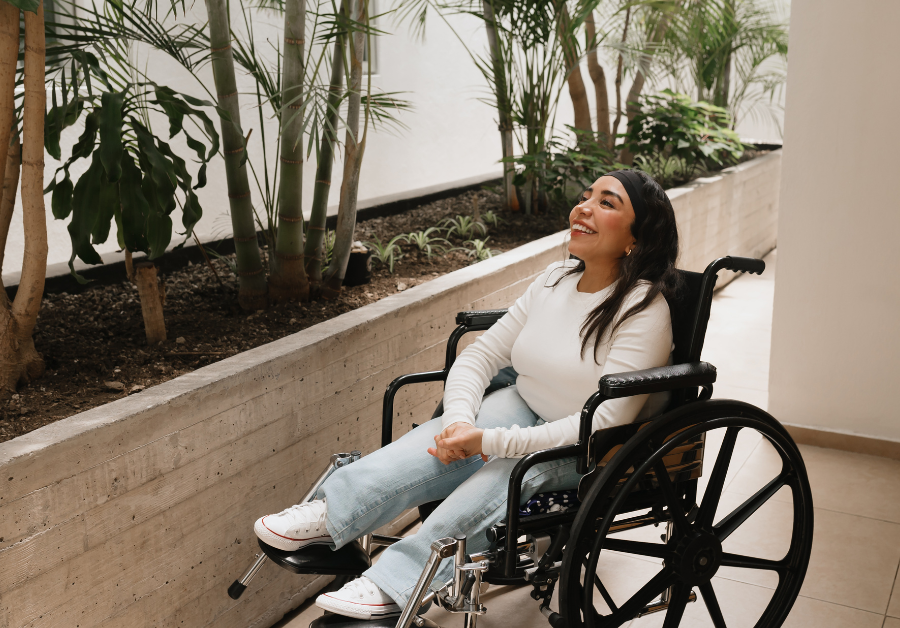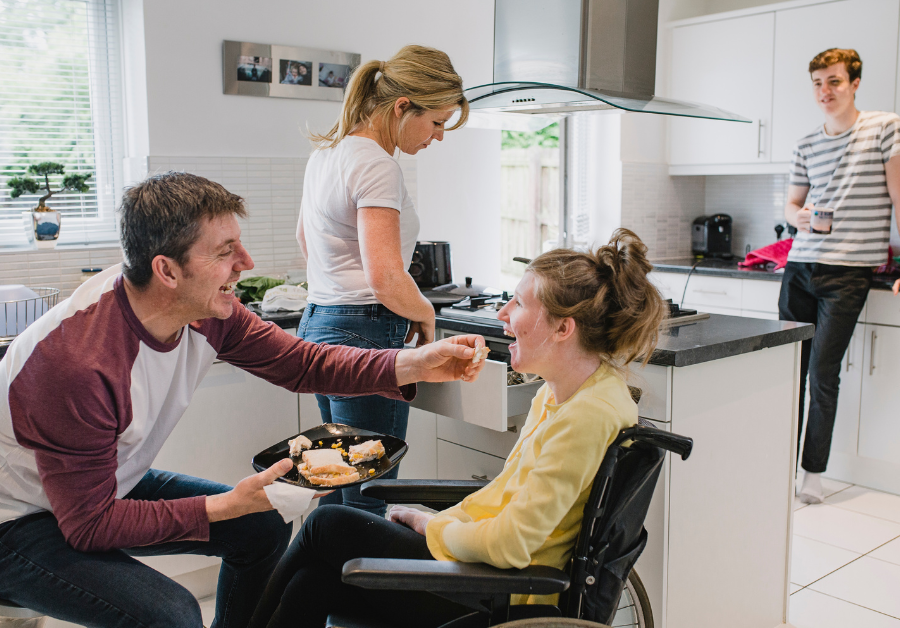NDIS Independent Living Options: Your Guide in Australia
Understanding NDIS Independent Living Options in Australia
Navigating the world of disability support can be challenging, especially when it comes to finding the right independent living options ndis. This comprehensive guide is designed to provide you with the information you need to make informed decisions about independent living, focusing on living options available across Australia, with a special focus on Adelaide. Whether you're in Sydney, Melbourne, Perth, Brisbane, or Hobart, understanding your NDIS (National Disability Insurance Scheme) entitlements and the support available is crucial for achieving your independent goals.
What are NDIS Independent Living Options?
Independent living options under the NDIS are designed to empower individuals with disabilities to live as autonomously as possible. These options encompass a wide range of housing, support, and services tailored to meet individual needs. The goal is to foster independence, community inclusion, and overall well-being.
Key Components of NDIS Independent Living
- Housing: This can range from living alone in an apartment to sharing a house with other people living with disabilities, often with support staff available.
- Support Services: These services are designed to assist with daily tasks, personal care, meal preparation, medication management, and community engagement.
- Funding: The NDIS provides funding for independent living options based on an individual's assessed needs and goals.

Types of Independent Living Options Available
The NDIS offers a variety of independent living options to cater to diverse needs and preferences. Here's a breakdown of some common choices:
Supported Independent Living (SIL)
Supported independent living (SIL) is a common option that provides support and supervision in a shared living environment. This support can include assistance with daily living tasks, personal care, and medication management. SIL is designed for individuals who require a higher level of support to live independently.
Benefits of SIL
- 24/7 support available
- Opportunity to build social connections with housemates
- Assistance with daily living tasks
Individualised Living Options (ILO)
Individualised living options (ILO) are tailored to meet the specific needs and preferences of an individual. ILO can involve a combination of housing, support, and services that are customised to help the individual achieve their independent living goals. This is a great option to choose if you want to live the way you want to live.
Benefits of ILO
- Highly personalised support
- Flexibility to choose your own housing and support providers
- Greater control over your living arrangements
Specialist Disability Accommodation (SDA)
Specialist disability accommodation (SDA) refers to housing designed with specific accessibility features to meet the needs of individuals with extreme functional impairment or high support needs. SDA accommodation can include features such as wheelchair accessibility, modified bathrooms, and assistive technology.
Benefits of SDA
- Improved accessibility and safety
- Enhanced independence and quality of life
- Access to specialised support and equipment
Other Housing Options
Beyond SIL, ILO, and SDA, there are other housing options available under the NDIS, including:
- Living alone in a private rental or owned property
- Sharing a house with family members or friends
- Living in a group home with 24/7 support
Enquire for Registered NDIS Independent living options provider
Contact Us Today
Navigating the NDIS for Independent Living
Securing NDIS funding for independent living options requires careful planning and preparation. Here's a step-by-step guide to help you navigate the process:
1. Determine Your Goals
Start by identifying your independent living goals. What do you want to achieve? What kind of support do you need to live independently? Consider your long-term aspirations and how independent living can help you achieve them. Take time to include independent living enjoyment of freedom.
2. Gather Evidence
Collect evidence to support your NDIS application. This may include medical reports, assessments from therapists, and letters from support workers or families. The more evidence you have, the stronger your case will be.
3. Develop Your NDIS Plan
Work with your NDIS planner to develop a comprehensive plan that outlines your independent living goals and the support you need to achieve them. Be clear about your housing preferences, support requirements, and any assistive technology or equipment you may need.
4. Explore Service Providers
Research NDIS service providers in your area who can offer the support and services you need. Consider factors such as experience, qualifications, and reputation. Ask for referrals from other NDIS participants or advocacy groups. For effective support, get a Support coordinator who can help you navigate through hundreds of providers in the market and help you choose the best.
5. Implement Your Plan
Once your NDIS plan is approved, start implementing it by engaging the services of your chosen providers. Regularly review your plan to ensure it continues to meet your needs and make adjustments as necessary.
Finding Independent Living Options in Adelaide
If you're based in Adelaide, there are numerous options available to support your independent living journey. Here are some resources to help you get started:
- Alliance Care Support: A dedicated Adelaide-based organisation providing supported independent living and in-home care services.
- NDIS Local Area Coordinator (LAC): Your LAC can provide information and guidance on NDIS-funded independent living options in Adelaide.
- Disability Advocacy Groups: These groups can provide advocacy and support to help you navigate the NDIS system.
Alliance Care Support: Your Partner in Independent Living
Alliance Care Support is a premier choice for exceptional NDIS services in Adelaide, South Australia. As a dedicated family business (SA Pty Ltd), Alliance Care Support is established with a vision of redefining standards in disability care and independent living. It serves as a pillar for individuals' housing, including autistic adults, offering maple community services. They are committed to empowering individuals with disabilities by providing tailored care, support, and resources. Their NDIS-approved homes are equipped with accessibility features, ensuring safety and comfort for participants.
Want to explore the Independent Living options near you?
Contact Us TodayIndependent Living for Adults with Autism
Independent living for adults with autism presents unique challenges and opportunities. It's crucial to consider the specific needs and preferences of autistic adults when exploring independent living options.
Key Considerations for Adults with Autism
- Sensory sensitivities: Create a calm and predictable environment to minimise sensory overload.
- Communication challenges: Provide clear and concise communication strategies.
- Routine and structure: Establish a consistent routine to promote stability and reduce anxiety.
- Social skills support: Offer opportunities to develop and practice social skills.
Mobility Aids and Equipment for Independent Living
Mobility aids and equipment can play a vital role in enhancing independence for individuals with disabilities. From wheelchairs and walkers to assistive technology, there's a wide range of options available to improve mobility and accessibility.
Common Mobility Aids and Equipment
- Wheelchairs: Manual and power wheelchairs to enhance mobility.
- Walkers: Assistive devices to improve balance and stability.
- Scooters: Electric scooters for longer distances.
- Assistive technology: Devices to support communication, vision, and hearing.
The Importance of Community Inclusion
Community inclusion is a fundamental aspect of independent living. It involves actively participating in community activities, building social connections, and feeling valued and respected as a member of society. This can involve joining a community living group.
Strategies for Promoting Community Inclusion
- Participate in local events and activities.
- Join social clubs or groups.
- Volunteer in your community.
- Build relationships with neighbours and friends.
Funding and Financial Considerations
Understanding the funding and financial aspects of NDIS independent living options is essential. The NDIS provides funding for reasonable and necessary supports related to independent living. It lets you choose what best suits you. Remember ILO funding is there to pay for the supports that suits you.
Key Financial Considerations
- NDIS funding: Understand your NDIS plan and how it supports your independent living goals.
- Rental assistance: Explore rental assistance programs to help with housing costs.
- Disability support pension: Check your eligibility for the Disability Support Pension.
The Role of Support Networks
Having a strong support network is crucial for successful independent living. This network can include family members, friends, support workers, and other professionals who provide emotional, practical, and social support.
Building a Strong Support Network
- Communicate your needs and expectations clearly.
- Seek out support from disability advocacy groups.
- Build relationships with other NDIS participants.
Frequently Asked Questions (FAQ)
- 1. Who is eligible for NDIS independent living support?▲You may be eligible if you're an NDIS participant whose disability significantly affects your ability to live independently. Eligibility depends on your goals, functional capacity, and support needs.2. Can I live alone with NDIS funding?▲Yes. You can live alone in a private rental or your own home, supported by SIL or ILO funding depending on your needs. You may also use assistive technology and in-home care services to support independence.
Support coordinators help you:
Understand your NDIS plan
Explore and connect with housing and support providers
Coordinate services and prepare for plan reviews
Make informed decisions about your living options
Autistic adults benefit from:
Structured, low-sensory environments
Consistent routines
Communication support
Skill-building for independent living
ILO and SIL models can be tailored to support their unique sensory, social, and daily living needs.
Conclusion: Embracing Independent Living with the NDIS
Independent living options ndis offer a pathway to greater autonomy, community inclusion, and overall well-being for individuals with disabilities in Australia. By understanding your NDIS entitlements, exploring the available options, and building a strong support network, you can embark on a fulfilling independent living journey. Whether you're in Adelaide, Sydney, Melbourne, Perth, Brisbane, or Hobart, the NDIS is there to support you every step of the way. Remember to seek disability support to help you achieve your goals.
Ready to explore your independent living options further? Contact Alliance Care Support today to learn more about our tailored NDISservices in Adelaide.
